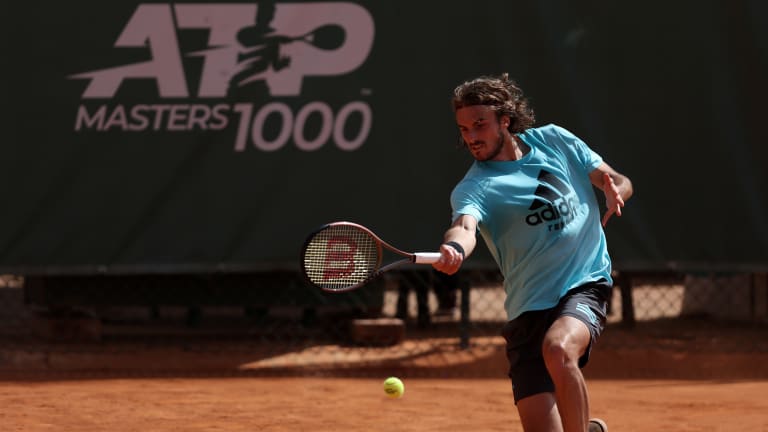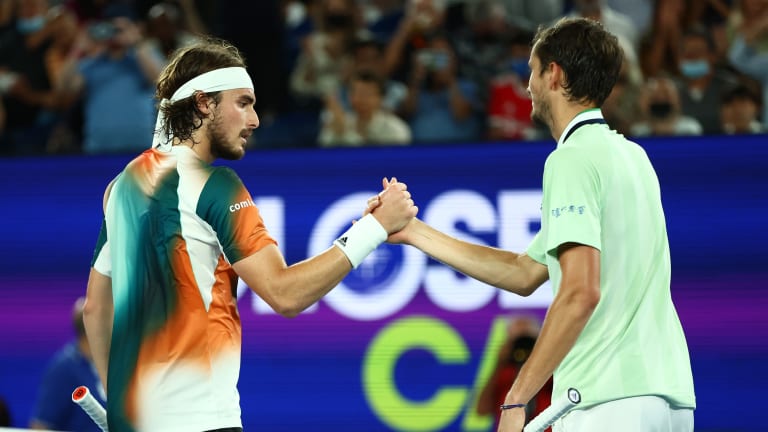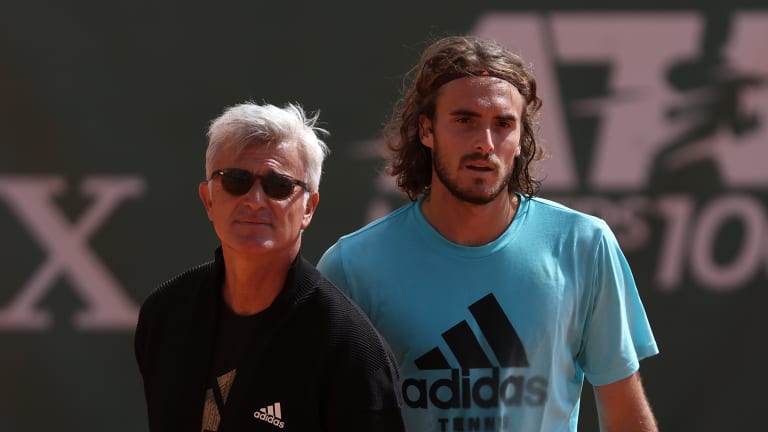ATP Monte Carlo, Monaco
Stefanos Tsitsipas needs to hit the reset button, and Monte Carlo is as good a place to do it as any
By Apr 13, 2022ATP Monte Carlo, Monaco
Monte Carlo takeaways: Alcaraz wins by playing for himself, one-handed backhands hold firm
By Apr 14, 2025ATP Monte Carlo, Monaco
Carlos Alcaraz overcomes worn-out Lorenzo Musetti for first title in Monte Carlo
By Apr 13, 2025ATP Monte Carlo, Monaco
Carlos Alcaraz vs. Lorenzo Musetti: Where to watch, and who will win, their Monte Carlo final
By Apr 12, 2025ATP Monte Carlo, Monaco
Carlos Alcaraz charges past Alejandro Davidovich Fokina to reach Monte Carlo final
By Apr 12, 2025ATP Monte Carlo, Monaco
Alex de Minaur: 6-0, 6-0 win over Grigor Dimitrov in Monte Carlo was 'bizarre'
By Apr 11, 2025ATP Monte Carlo, Monaco
Carlos Alcaraz vs. Alejandro Davidovich Fokina: Where to Watch, Monte Carlo Preview, Betting Odds
By Apr 11, 2025ATP Monte Carlo, Monaco
Alex de Minaur vs. Lorenzo Musetti: Where to Watch, Monte Carlo Preview, Betting Odds
By Apr 11, 2025ATP Monte Carlo, Monaco
Carlos Alcaraz waits for his chances to clinch first clash with Arthur Fils in Monte Carlo
By Apr 11, 2025ATP Monte Carlo, Monaco
Stefanos Tsitsipas vs. Lorenzo Musetti: Where to Watch, Monte Carlo Preview, Betting Odds
By Apr 10, 2025Stefanos Tsitsipas needs to hit the reset button, and Monte Carlo is as good a place to do it as any
The defending champion enters a portion of the season filled with both opportunity and concern.
Published Apr 13, 2022
Advertising
Advertising

Stefanos Tsitsipas will defend champion's points at the loaded Monte Carlo Masters.
© Getty Images
Advertising

The Tsitsipas-Medvedev relationship has been a complicated one. In terms of match play, the Russian leads the Greek 7-2.
© Getty Images
Advertising

Tsitsipas' father and coach, Apostolos, is never far from his wildly talented son.
© Getty Images